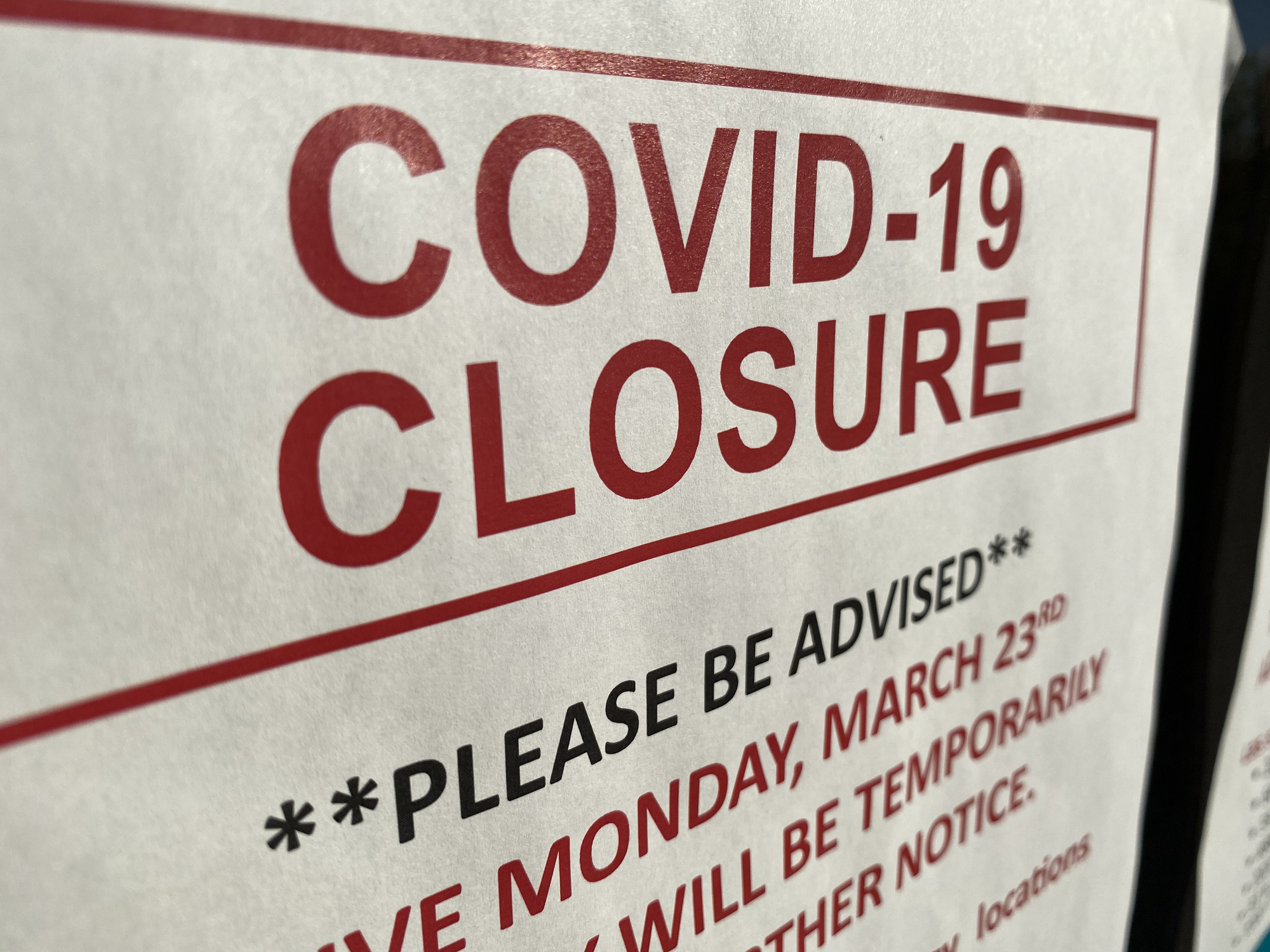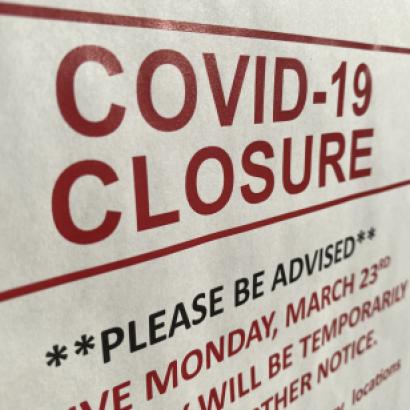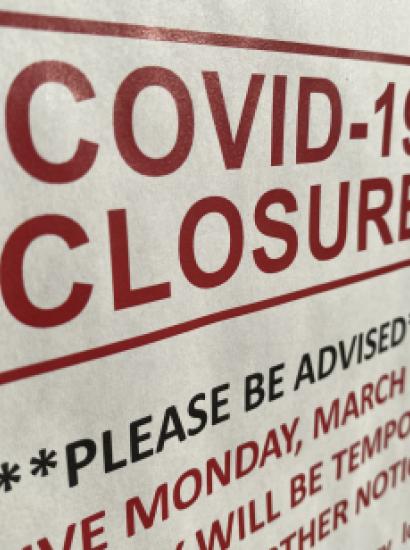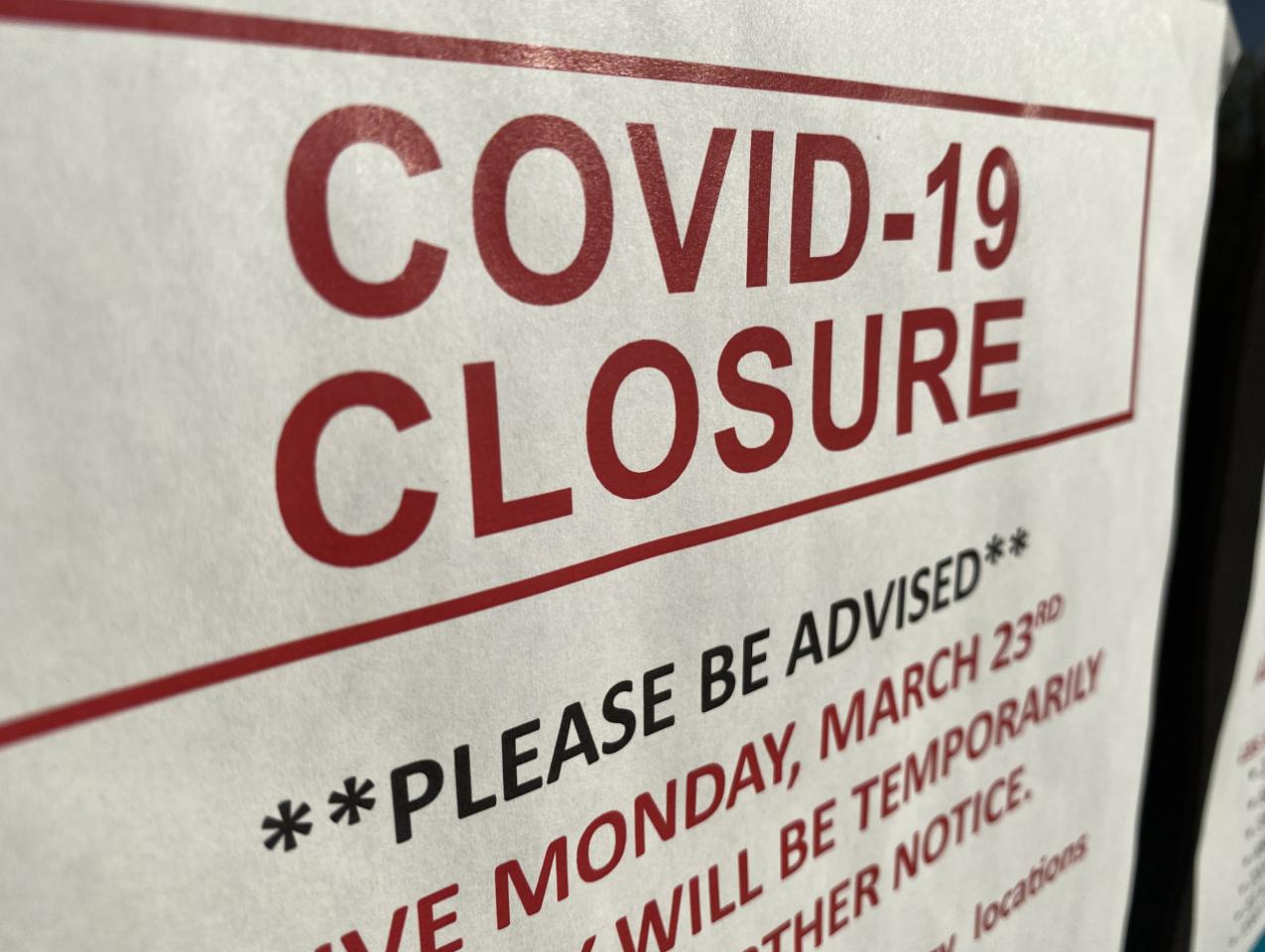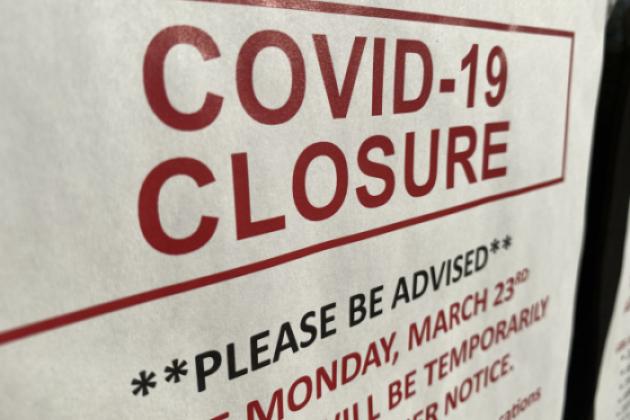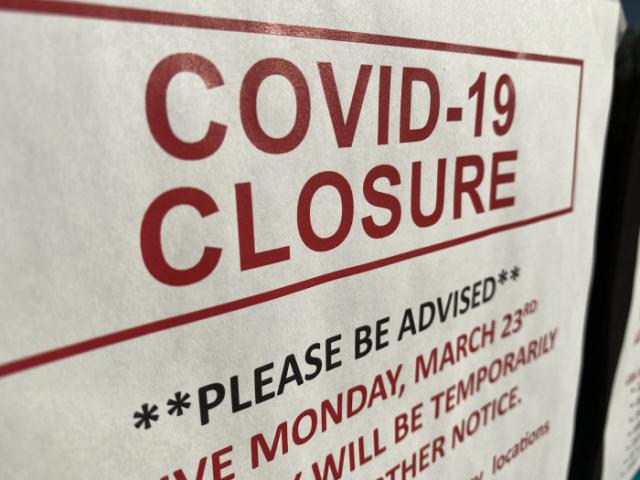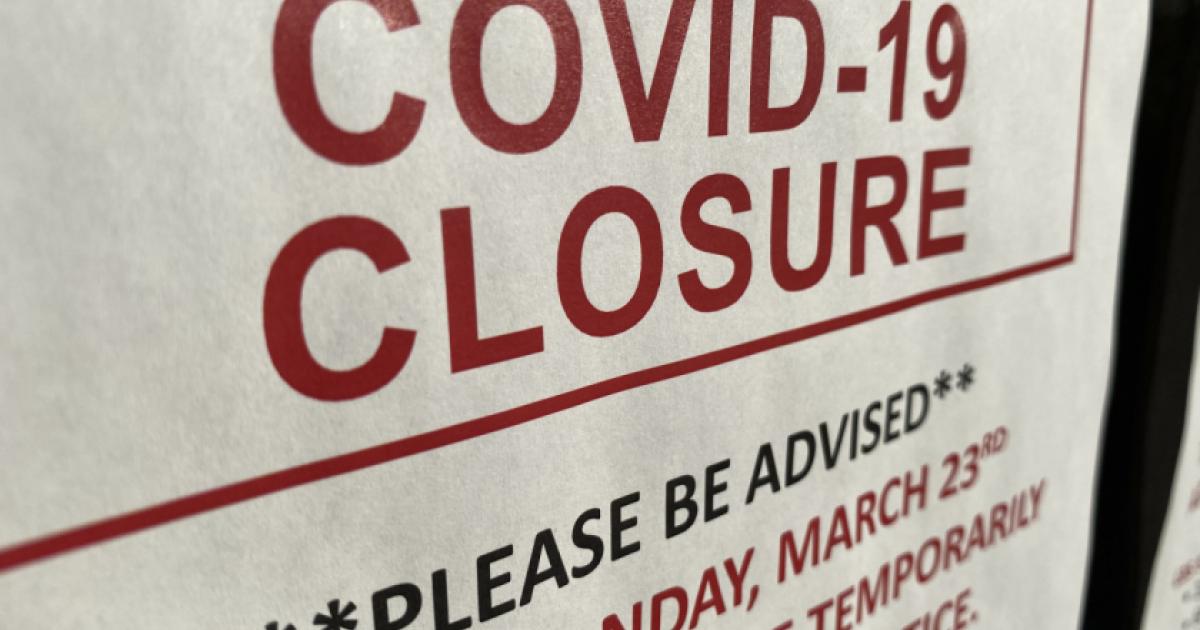- Law & Policy
The more we learn about the origins of the coronavirus, the more compelling the case against China grows.
Chinese doctors and scientists encountered Covid-19 patients as early as November 2019 and promptly alerted the authorities. But Beijing clamped down on their efforts to research the virus and notify the world. Beijing allowed large numbers of its own people to enter and leave Wuhan, despite knowing of the risk to them; and even after cordoning off Wuhan from the rest of China, it permitted foreign travel that soon spread the virus to other countries. Yet as Washington and American states continue to fight the pandemic, the campaign to hold China to account is only beginning.
The United States and other nations must hold China accountable not because of anger—though that sentiment is entirely justified—nor a desire for retribution. The world must make China pay in order to create incentives that will force it to improve its behavior. That may well demand measures that will force China to experience the full costs of its recklessness.
Without such incentives, China may inflict this kind of tragedy on the world again. China’s record of endangering global health is poor. China was the source of the SARS epidemic of 2003, though thankfully the spread of that disease was controlled. And US State Department cables from 2018 reveal that American experts warned that accidents at Wuhan laboratories experimenting with viruses could cause grave harm.
China’s failures to warn the world about the coronavirus arise from a simple set of legal principles. In domestic and international affairs, our legal systems are familiar with the problem of negative externalities. A factory in one nation, for example, creates a negative externality by polluting the water and air of a neighbor. The upstream nation realizes the benefits of the factory, while the downstream nation suffers the pollution costs. The polluter likely will not stop – indeed, it may well increase its activity – because it does not internalize both the benefits and full costs of its production. (A great deal of economic research, launched by Nobel Laureate Ronald Coase, asks whether the downstream nation should pay the upstream nation to stop, whether the polluter should pay the victims to compensate for the harms, and what clear property rights or liability rules should apply.) The international legal system began to grapple with these problems in the 1930s in the celebrated Trail Smelter dispute between the U.S. and Canada. This was the first decision to recognize international liability for damages caused by pollution spreading from one nation to another, even when no existing treaty created an obligation to prevent such damage.
Beijing already externalizes the costs of its rapid economic growth and authoritarian control in a variety of ways. Its factories regularly pollute the air not just of its own cities, but of South Korea, Japan and its other neighbors as well. It overproduces commodity products to maintain employment levels. It sends defective, even dangerous, products into world markets including, recently, some 600,000 masks that had to be rejected by The Netherlands,
The coronavirus pandemic represents the deadliest form so far of Beijing’s externalization of its economic and political system. China allows primitive “wet markets” to remain open for business, even though the close proximity of exotic wildlife in food markets encourages deadly viruses to jump from animals to humans. It attempts to operate First World virology and disease research laboratories, even though it lacks the skill and care necessary to run them safely. According to reports in the Washington Post, U.S. diplomatic officials who toured the Wuhan virology and CDC facilities left deeply concerned that the staff could not operate the labs safely.
The Chinese Communist Party governs through a hierarchical, authoritarian system that elevates the fiction of a supremely confident technocratic government over transparency, information sharing, and accountability. Local and regional officials continue to misrepresent the spread of the disease in Wuhan and its surrounding region, no doubt to preserve the CCP’s reputation and to escape punishment from the central government. One British study argues that if China’s government had transparently shared information on the outbreak and had taken immediate steps to quarantine Wuhan and the surrounding region, the rest of the world could have avoided more than 90 percent of the subsequent deaths from Covid-19.
Instead, China used its influence within the World Health Organization to obscure the realities of the disease – and even to discriminate, on a public health matter of the utmost human importance, against Taiwan. China thus showed, very starkly, that it puts its political and economic agenda before any consideration of our common humanity.
Some in Congress and the states have already launched the first salvos in response. Senators Marsha Blackburn and Tom Cotton introduced bills last week to strip China of its sovereign immunity, which could render Beijing liable to lawsuits in American courts. Some state attorneys general have filed suit against China for the harms caused by the virus. Members of the House of Representatives have asked Attorney General William Barr and Secretary of State Michael Pompeo to sue China in the International Court of Justice.
These proposals may fail on their own, however, because they rely on international law and courts. Despite its propaganda, China has long refused to observe international norms. It intervened to kill American troops in the Korean War, which had received the sanction of the United Nations Security Council. It has attacked most of its neighbors, including Russia, India, and Vietnam, in violation of international law. It has annexed unwilling territories, such as Tibet. It has sustained North Korea’s disregard of the international norm of nuclear non-proliferation. And most recently, in the South China Seas, it has constructed artificial islands on the high seas and in the territorial waters of other nations. Beijing has simply ignored an international arbitral decision finding the man-made islands a violation of the laws of the sea.
China has also consistently violated international human rights norms, for instance in its persecution of ethnic minorities such as its own Uighurs, or of religious minorities like the Falun Gong. It has cracked down on pro-democracy movements in Hong Kong. It uses its military and economic muscle to damage nearby Asian nations, as when it denied Japan the ability to purchase essential rare minerals, or when it exploits its upstream location to cheat its southeast Asian neighbors of their accustomed share of riverine waters. And it has exploited vulnerable African nations without concern for their environments: last June, for instance, a Kenyan tribunal halted the construction of a power plant that China intended to build in violation of Kenya’s environment protection rules and despite the damage to an historic Kenyan city.
Legal remedies will only succeed if the United States and its allies consider aggressive measures that do not rely upon international courts and organizations or Chinese compliance. Since China would not willingly accept adverse legal judgments from foreign or international courts, and since it is highly unlikely that China’s own courts would hold the regime liable for its wrongs to other nations, those nations should engage in self-help. They must deploy their sovereign powers to secure compensation and deter future wrongdoing.
First steps include measures that the United States has already taken against nations such as Russia, Iran, and North Korea. The United States could impose economic sanctions on Chinese officials responsible for the suppression of information about the coronavirus or on industries that have stood to benefit from the global response to the pandemic, such as medical equipment suppliers or pharmaceuticals manufacturers. Washington might even impose general tariffs on Chinese imports or restrictions on Chinese investment in the U.S., because it seeks to increase the financial costs on China for its deliberate negligence toward the outbreak. Less opportunity may present itself here, however, due to the administration’s existing use of tariffs to change the terms of US trade with China.
A more aggressive option could turn China’s economic expansion abroad against itself. No longer content to remain a provider of low-cost assembly-line manufacturing, China has rapidly increased its foreign investment both in the United States and abroad. China itself holds an estimated $1.07 trillion in U.S. treasury debt; Chinese companies and nationals have spent the last decade snapping up billions in real estate in America’s priciest cities. Chinese state-owned enterprises have endeavored to buy American high-tech companies with strategic value. Beijing’s Belt and Road Initiative has directed even more money for a new “Silk Road” that will link China to Western markets – BRI has reportedly spent $200 billion on infrastructure projects from Sri Lanka and Pakistan to Greece and Italy.
China’s expansion into foreign property renders it vulnerable. The United States could expropriate Chinese property in the United States. Conceivably, Washington could even cancel Chinese-held treasury debt and using the proceeds to create a trust fund that would compensate Americans harmed by the pandemic. It could claim that in cancelling Chinese holdings of U.S. Treasury debt, the United States is only recouping China’s international debt cancelled by the Chinese Communist Party when it seized power in 1949.
While the United States usually stands in favor of property rights abroad, it has resorted to similar methods during past crises. American states cancelled British-held debts during the Revolutionary War, and under the Jay Treaty of 1796 the federal government ultimately paid compensation to those with claims against the British. In response to the Cuban Revolution of 1959 and the Iranian Revolution of 1979, the United States froze foreign government assets and attempted to use them to compensate Americans who lost property or businesses.
To be sure, Chinese owners of assets expropriated by the United States could argue that they were entitled to “just compensation” under the Fifth Amendment for the “taking” of their property. The Supreme Court ruled long ago in the Russian Volunteer Fleet case that “friendly” aliens were entitled to just compensation for a governmental seizure of their U.S. assets. And expropriation is the paradigm of a “taking.” But if just compensation had to be given to these property owners, the very purpose of the expropriation would be defeated. The basic answer, however, is that the U.S. government has seized foreign assets in the past (from Cuba and Iran) and paid them out to compensate the American victims who suffered harms at the hands of those governments. In such circumstances, no compensation to the foreign asset holders was constitutionally due.
The United States could further strike a serious blow to Chinese economic interests by encouraging its allies in the developed and developing worlds to follow suit. China has been lending billions to African nations, creating the risk of debt traps for them; the United States could encourage them to renege on their debts. China has foreclosed on assets that indebted developing nations had offered as security for loans (such as the Sri Lankan port of Hambantota); the debtor nations could repossess them. China has allegedly sent aid to Venezuela and other Latin American countries; Washington could resolve civil wars and political disputes in the hemisphere while protecting them from Chinese efforts to collect. The Trump administration could support these nations by making American lending facilities and foreign aid available and folding them into free trade agreements. It could agree with European and Asian nations to resist Chinese efforts to pursue compensation when they renege on loans, expropriate ports and other infrastructure, and seize property.
The list of potential responses does not stop there. Japan is paying for its companies to repatriate their business activities and assets from China. The United States and its other allies could start to do the same. Supply chains that currently run through China, say for pharmaceuticals or computer chips, could be re-routed to go through more dependable sources like Ireland or Israel, or other low-cost manufacturers such as Mexico or Vietnam. National justice ministries could become more vigorous in investigating and prosecuting crimes or other offenses committed by China, including intellectual property theft, bribery, and computer crime.
The attractive element of these measures is that their execution rests in the hands of each sovereign government. China has placed its assets within our control; it would have to throw itself on the mercies of our courts for their return – a possibility that Congress could eliminate by legislation. The main criticism of these options rests in tit-for-tat escalation: China could respond by seizing American-owned property within its own borders. The United States would have the superior legal and moral claim, in that its expropriations serve to settle China’s debt to the world for its deliberate indifference to the coronavirus outbreak. China’s response would only amount to retaliation for the abrupt seizure of its property abroad.
While China could respond with its own expropriations, they might end up harming China more than the United States. The Chinese Communist Party depends on rapid economic growth to keep its population satisfied enough to remain in power. Seizure of foreign investment could lead to an end to the free trade and open markets that have made China’s remarkable economic rise possible. It can seize the factories that assemble iPhones, but it cannot seize the intellectual capital that invents the technology and designs the devices – those remain with the United States and its allies. If China cannot innovate, which the United States could make all the harder by blocking Chinese students and researchers from Western universities, it will only be left holding factories designed to mass produce cheap goods. Expropriations could trigger a rapid economic decoupling that could leave China stuck in the mass production forms of the 20th-century economy, while the U.S. and its allies advance toward a more decentralized economy where decentralized enterprises, internet-based services, and 3-D printing can quickly transform intellectual creativity into goods and services.
To be sure, U.S. expropriations could roil the postwar economic system that Washington has cultivated since the end of World War II, much to its own and the world’s benefit. Nations might come to doubt the rule of law in the United States and Washington’s strong defense of property rights, which have created the stability and predictability needed for the remarkable economic growth of the last 75 years. Cancelling Chinese-held U.S. debt could trigger severe disruption in the market for U.S. Treasuries, which could further undermine other financial markets. The United States would have to deploy political and financial leadership to assure other nations, and the markets, that it will limit these options solely to forcing China to pay for the greatest public health disaster in a century. It can then set about the work of constructing a new international order that takes account of the new great power rivalry that may now replace the peaceful U.S. hegemony of the last eight decades.
John Yoo is the Heller Professor of Law at the University of California at Berkeley, a visiting fellow at the Hoover Institution, and a visiting scholar at the American Enterprise Institute. He is the author of the forthcoming Defender-in-Chief: Donald Trump’s Fight for Presidential Power (St. Martin’s Press, July 2020).
Robert Delahunty is the Le Jeune Professor of Law at the University of St Thomas in Minneapolis and a former official in the U.S. Department of Justice and the White House.
….







